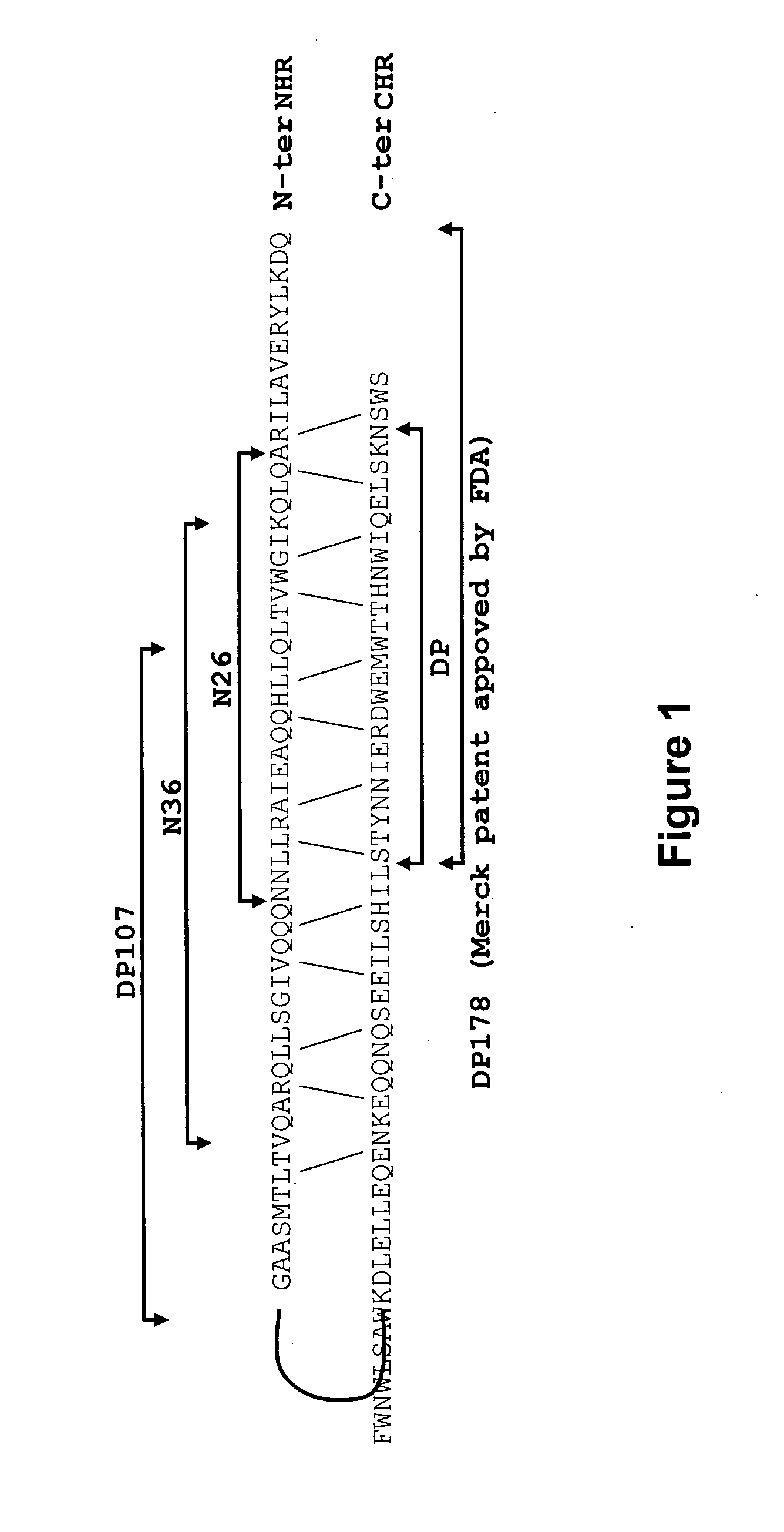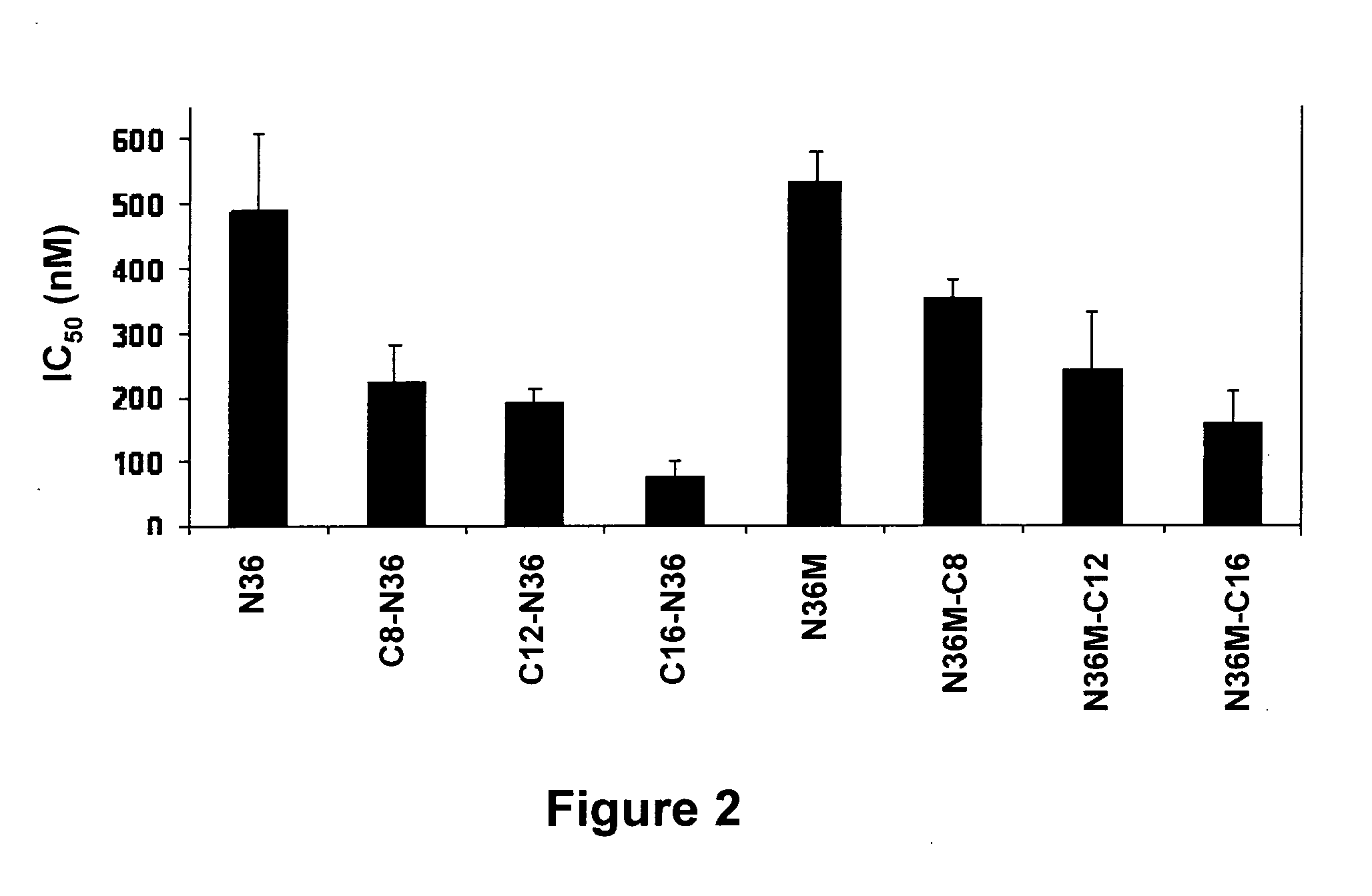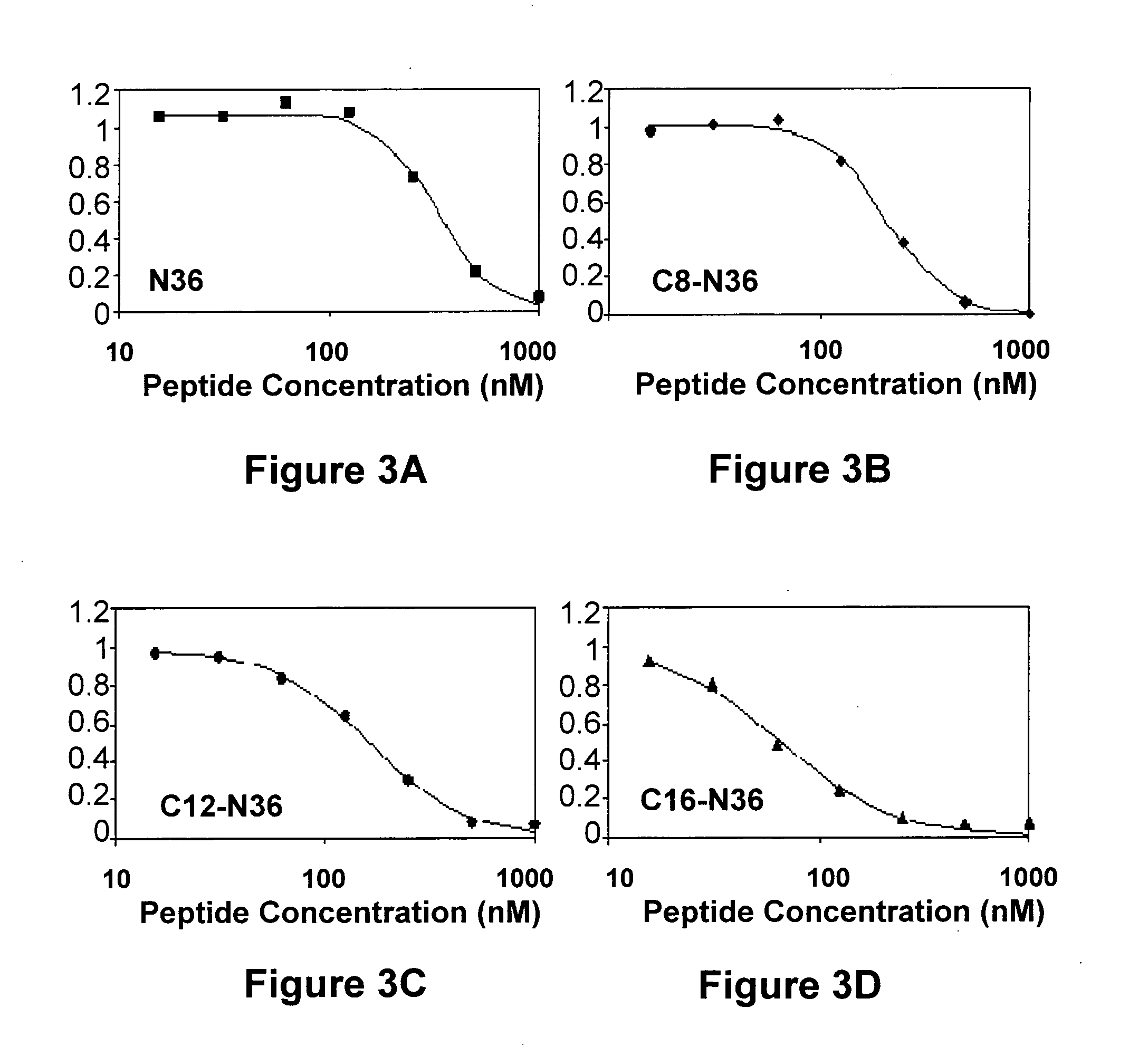Lipopeptide inhibitors of hiv-1
a technology of lipopeptide inhibitors and hiv-1, which is applied in the field of lipophilic conjugates, can solve the problems of increasing the length of the peptide, the rate limitation step, and the cost of manufacturing peptides, and achieves the effect of inhibiting the fusion of hiv gp41 and advantageous pharmacological properties
- Summary
- Abstract
- Description
- Claims
- Application Information
AI Technical Summary
Benefits of technology
Problems solved by technology
Method used
Image
Examples
example 1
Anchoring of N36 to the Membrane Increases its Inhibitory Activity
[0162]To scrutinize the effect of anchoring N36 to the membrane, we conjugated octanoic, dodecanoic, and palmitic acids to the N-terminus of N36 (Table 1). The resulting peptides C8-N36, C12-N36, and C16-N36 (Table 1) were examined in a cell-cell fusion inhibition assay and the results are shown in FIG. 1. A correlation was observed between the length of the conjugated fatty acid and the inhibitory activity of the N-conjugated N36 peptides. N36, C8-N36, C12-N36, and C16-N36 exhibited IC50 values of 488±119, 222±56, 190±21, and 72±27 nM, respectively. Interestingly, AcN36 was not active up to 2000 nM; therefore we refer to it as inactive. This correlates with previous studies demonstrating an IC50 of 16000±2000 nM and 584±46 nM for the acetylated and non-acylated forms of N36, respectively (Bewley et al., 2002, J. Biol. Chem. 277:14238-45). Overall, our data reveal that the anchoring of N36 to the membrane significantl...
example 2
The Orientation of Anchored N36 Towards the Endogenous CHR Region is not Crucial
[0163]To examine the importance of the proper orientation of the N36 peptide in relation to the pre-fusion conformation, we also conjugated octanoic, dodecanoic, and palmitic acids to the C-terminus of modified N36, termed N36M (Table 1). The parental peptide and the resulting fatty acid-conjugated peptides N36M, N36M-C8, N36M-C12, and N36M-C16 (Table 1) were examined in a cell-cell fusion inhibition assay and the results are presented in FIG. 1. Likewise, a correlation was observed between the length of the conjugated fatty acid and the inhibitory activity of the C-conjugated N36 peptides. N36M, N36M-C8, N36M-C12, and N36M-C16 exhibited IC50 values of 531±48, 354±25, 241±89, and 159±47 nM, respectively. Since acetylating N36 abrogates its activity we added an acetyl group to N36M-C12 and N36M-C16 resulting in AcN36M-C12 and AcN36M-C16. Both lipopeptides were examined in a cell-cell fusion inhibition ass...
example 3
Inhibitory Curves Analysis Suggest a Different Mode of Inhibition for the Peptides of the Present Invention
[0165]Representative experiments showing the inhibitory activity curves of N36 and its N-terminally fatty acid-conjugated analogs is presented in FIG. 3. FIG. 3 reveals different shapes of the binding curves for the different peptides shifted from sigmoid through a median shape to hyperbolic. A sigmoid shape can be explained by the tendency of N36 to oligomerize. Therefore, without wishing to be bound by theory or mechanism of action, we speculated that the different binding curves might be attributed to a different inhibitory oligomeric state of the peptides. Consequently, for optimal fitting, we employed an equation that contains a cooperativity parameter, indicative in this case, to the inhibitory oligomeric state of the peptide. Therefore, after a fit is achieved the c value represents the oligomeric state of the peptide. The values of the oligomerization parameters for the...
PUM
| Property | Measurement | Unit |
|---|---|---|
| concentration | aaaaa | aaaaa |
| path length | aaaaa | aaaaa |
| wavelength range | aaaaa | aaaaa |
Abstract
Description
Claims
Application Information
 Login to View More
Login to View More - R&D
- Intellectual Property
- Life Sciences
- Materials
- Tech Scout
- Unparalleled Data Quality
- Higher Quality Content
- 60% Fewer Hallucinations
Browse by: Latest US Patents, China's latest patents, Technical Efficacy Thesaurus, Application Domain, Technology Topic, Popular Technical Reports.
© 2025 PatSnap. All rights reserved.Legal|Privacy policy|Modern Slavery Act Transparency Statement|Sitemap|About US| Contact US: help@patsnap.com



